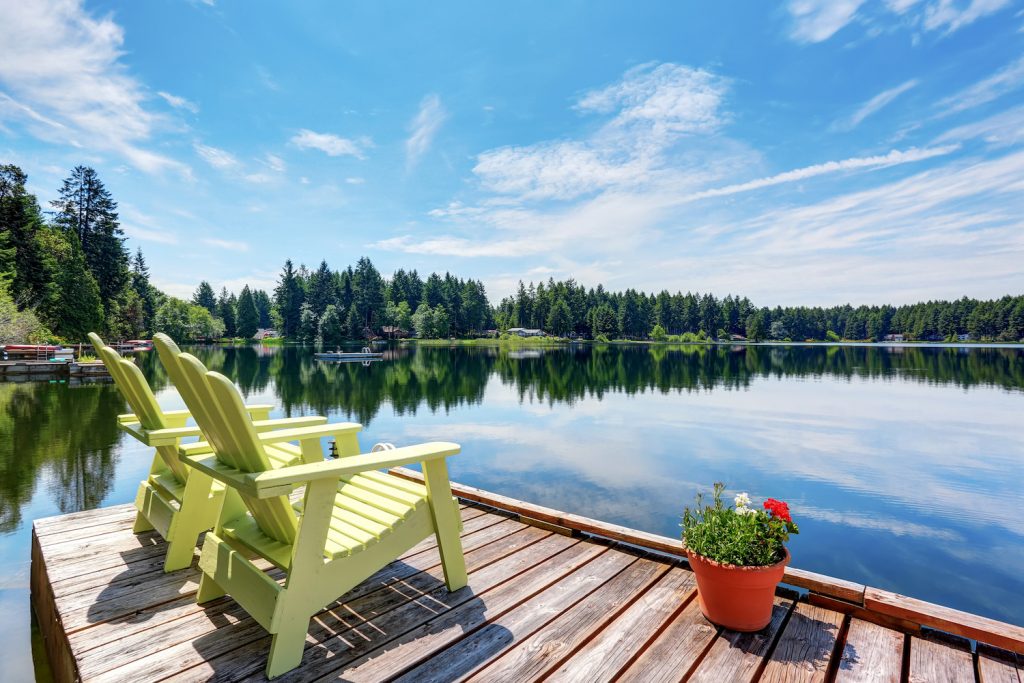Owning and Maintaining a Home on Indian Lake

Choosing to own a lake home is a choice in lifestyle. It isn’t for the faint of heart, but nothing worthwhile is. It’s a choice to plan, prepare, and protect while everyone else is playing. But the payoff is worth all the time, effort, and, yes, a little money that goes into owning and maintaining a home on Indian Lake in Ohio.
More importantly, all of your diligent maintenance will pay off when it comes time to sell. As you know, people will pay a premium for lakefront property, but only if it is well maintained. This guide will teach you how to maintain your lakehouse so you can eventually sell it at top dollar.
Below are 4 tips for how to maintain a home on Indian Lake.
1. Get a General Inspection
If you didn’t do this when purchasing your home, or if it has been a few years, call an inspector you trust to provide a general inspection of your property. Depending on the size of your home, costs can range around a few hundred dollars. Don’t choose an inspector based on price, though — ask around for referrals, especially from your Realtor.
Expect the process to take a couple of hours and for them to find as much as they possibly can. Don’t get angry — their job is to look for everything that you can’t see or know, within reason. This detailed report will arrive in a few days and list everything that is or could be an issue down the road. Ask your inspector and Realtor which items should be addressed first and how to prioritize the list from there. Future buyers will appreciate the thoroughness of your maintenance, and they may even waive inspection repairs altogether, saving you time and money.
2. Do a Deep Clean at Least Once a Year
Mold and mildew, scary insects, and foul smells like to take residence in dirty places. Find a pleasant, sunny weekend to power wash all exterior concrete, brick, metals, and plastics. Be careful near seems, wood, and mortar as the water pressure can be too harsh and cause water intrusion and deterioration. Scrub and wipe indoor and outdoor surfaces with a bleach alternative to kill bacteria and prevent much mold and mildew.
Be sure to wrap up your exterior wash-fest while it is still sunny and with a good breeze. Bonus tip! Open up the home and let the fresh air blow through while cleaning inside. This cuts down on harmful cleanser fumes and indoor allergens in the air.
Throw pillows, mattresses, and cushions outside in the sunshine — mother nature’s disinfectant!
Overall, pay particular attention to areas prone to collecting moisture, such as windows, doors, sinks, and showers. Work to keep these areas dry and clean to prevent damage to the home.
3. Make Sure You Winterize in the Off-Season
This tip is about preparing your home for the off-season, which is usually winter. No matter the season, make sure that your house is safe from the harms of excess moisture, especially before leaving the premises for a considerable length of time. Fully winterizing your lake home isn’t necessary if you plan to stay throughout the season, but there are some steps every homeowner should take, such as detaching water hoses from the house, removing excess dead leaves and debris, covering outdoor furniture, and fixing drafty windows, doors, and chimneys.
If you plan to completely close up for the wintry days ahead, remove all food, unplug everything, and, if you have them, cap the chimney and pump your septic tank. Most importantly, avoid frozen pipes. You can do this by shutting the water off at the road and running the pipes and water heater dry. You may also consider putting some plumbing antifreeze down each of your drains for any water that collects with the potential of freezing.
If you plan to leave your electricity on, set the thermostat anywhere between 50 and 55 degrees Fahrenheit, but if you want a lower bill for these unused cold days, call the electric company to pause service until the warmer days when you return.
4. Be Part of the Indian Lake Community
Lastly, find a local community. Set up or join a local Facebook group or trade emails and phone numbers with neighbors. Either way, you’re going to want to have connections with people who will have the same questions you wonder and the answers that you’re looking for. You can ask them everything from referrals for handymen or lawn maintenance to the best fishing spots and bate to use. This resource will be especially useful when winterizing and opening up the lake house every year.
While you’re away from the lakehouse, locals can help keep tabs on the weather and potential hazardous or worsening conditions of the property. And when it comes time to sell, this group could be an efficient way to network and reach potential buyers. Bottomline, find your people—this is your lifestyle now, but you know that lake life is the best life!
Find out more about buying or selling an Indian Lake home here.





